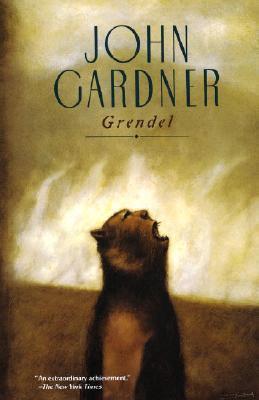Chapter 6
byChapter 6 delves into a pivotal transformation for the protagonist, who, after encountering a powerful dragon, begins to feel both invincible and alienated from the world around him. The dragon’s charm grants Grendel a sense of invulnerability, making him impervious to weapons, which gives him an overwhelming feeling of power. This newfound invincibility, however, leads him into an isolating solitude, where the weight of his own existence becomes more apparent. The idea of waging war against Hrothgar begins to take shape in his mind, but as he watches the lively celebrations at the meadhall, he remains detached. The celebratory noises, once a reminder of his own shame and doubts, now evoke only anger and frustration. His growing sense of alienation is heightened as he reflects on the joy and unity of the Danes, recognizing a stark contrast with his own dark nature and inner turmoil. Grendel’s disconnection from the world around him grows, as he becomes consumed with thoughts of war and the destructive path he is about to embark on.
Grendel’s sense of power is solidified when, in a moment of arrogance, he approaches the meadhall unnoticed and is attacked by one of Hrothgar’s guards. To his astonishment, the guard’s weapon does not harm him, and this reinforces his belief in his invincibility. The guard’s attack, meant to defend the meadhall, only strengthens Grendel’s sense of superiority as he effortlessly overpowers the man. A mix of grim amusement and rising power consumes him as he grapples with the guard and ultimately kills him, his grotesque display of violence marking a pivotal moment in his transformation. This act of brutality signals the start of a systematic series of raids against Hrothgar’s men, during which Grendel finds an unsettling thrill in the chaos he unleashes. The violence, once seen as a means of asserting his power, quickly becomes a defining feature of his identity, reshaping him from a solitary creature into a feared destroyer. Each raid deepens his immersion into darkness, as he grows more disconnected from any remnants of humanity and embraces his role as the monster he has become.
Amid the chaos, Grendel encounters Unferth, a thane whose attempt at heroism is both misguided and exaggerated. Unferth, eager to prove his worth and display his bravery, confronts Grendel in a bold but ultimately futile challenge. Their interaction reveals the deep internal conflict within Unferth, who is caught between his idealized vision of heroism and the brutal reality of his position. Grendel, however, is quick to mock Unferth’s pretensions of greatness, questioning the meaning of heroism in a world marked by constant violence and suffering. He sees Unferth as a tragic figure—one who is bound by illusions of grandeur and unable to face the harsh truths of existence. Grendel, whose worldview has been shaped by violence and survival, finds it almost laughable that Unferth clings to the notion of heroism as if it offers a solution to the brutal realities of life. This exchange highlights the futility of human ideals in a world where power and survival are the ultimate currencies, leaving Unferth’s noble ideals in tatters.
In a surprising twist, Grendel decides to spare Unferth’s life, choosing not to kill him, but instead dragging him back to Hrothgar’s meadhall. This act of mercy, however, is not born from compassion, but rather from a twisted sense of amusement, as Grendel recognizes that sparing Unferth will only deepen the thane’s shame and jealousy. Unferth, who has spent his life striving for recognition and the title of hero, is left to confront the futility of his ideals, and the act of sparing him further isolates him from his own sense of self. Grendel, in his twisted enjoyment, laughs at the irony of the situation, knowing that his actions have only strengthened Unferth’s internal conflict. This chapter is a stark exploration of the relationship between heroism, power, and the absurdity of human ideals. While Unferth remains trapped in his ideals of greatness, Grendel continues his relentless raids, amused by the contrast between his own destructive nature and Unferth’s futile pursuit of heroism. The chapter emphasizes themes of isolation, power, and the contrast between the brutality of existence and the fantasies of heroism, showcasing the complex dynamics between the two characters. Grendel’s actions and internal conflict reflect the deepening complexities of his identity, as he continues to wrestle with the dark forces shaping his existence.

